
‘Error in writing the correct figure in words would not make the cheque invalid’; Delhi High Court sets aside discharge order
Overwriting of the date on the cheque has not been considered as a material interpolation meriting dishonour of the cheque.

Overwriting of the date on the cheque has not been considered as a material interpolation meriting dishonour of the cheque.
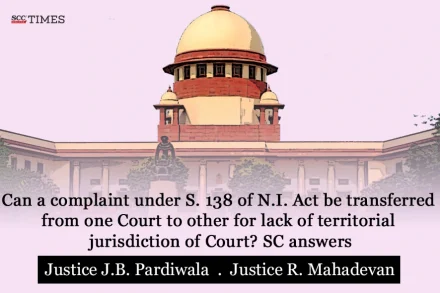
For the purpose of transfer of any case or proceedings under Section 406 of the CrPC, the case must fall within the ambit of the expression “expedient for the ends of justice”.

Top criminal cases on quashing of proceedings, arrest, bail, acquittal, and more.
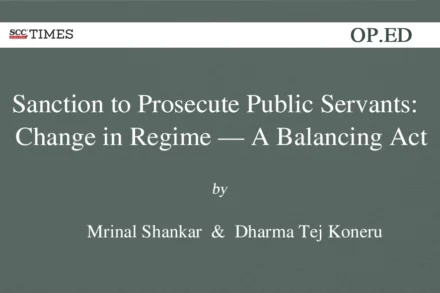
by Mrinal Shankar† and Dharma Tej Koneru††

“The conduct of the litigants to keep the dispute alive for mala fide reasons has the tendency of keeping the docket of the Courts heavy to the detriment of other litigants whose cases have been pending for years together.”

“From the perusal of Section 138 N.I. Act, it is clear that if any invalid cheque is presented before the Bank and the same was dishonoured, then no liability under Section 138 of NI Act would be attracted, and the cheque of Allahabad Bank is invalid after 30-09-2021 after merging the Allahabad Bank into the Indian Bank on 01-04-2020.”
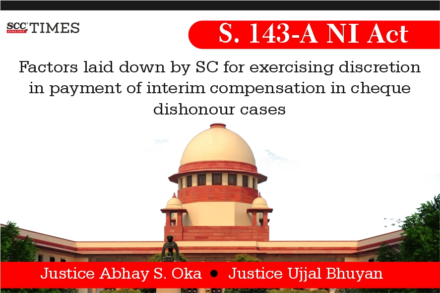
“If the word ‘may’ is read as ‘shall’, it will have drastic consequences, as in every complaint under Section 138, the accused will have to pay interim compensation up to 20 per cent of the cheque amount and such an interpretation will be unjust and contrary to the well-settled concept of fairness and justice, exposing the provision to the vice of manifest arbitrariness.”
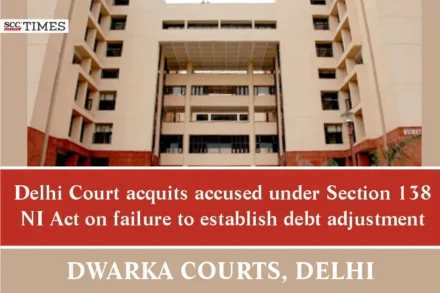
The complainant woefully failed to account for the amount of Rs 6,11,071/- which was due on him towards the accused. Therefore, it cannot be said that the amount represented on the cheque in question was a legally recoverable debt.
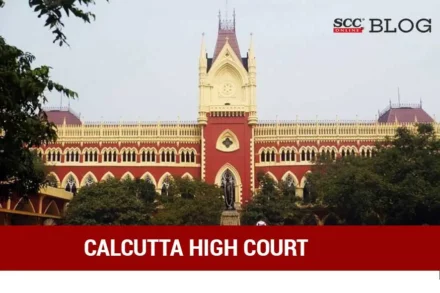
Calcutta High Court delved into the legalities surrounding the presumption under Section 139 of the Negotiable Instruments Act, 1881, emphasizing that it is a “rebuttable presumption”.
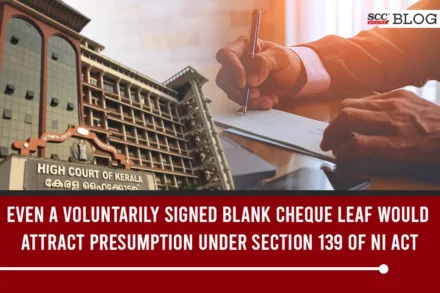
Kerala High Court stated that the petitioner failed to adduce any cogent evidence to prove that the cheque in question was not aimed at discharging any legally enforceable debt.
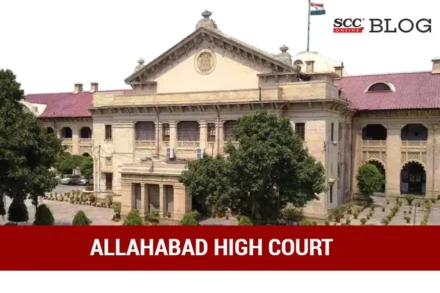
Allahabad High Court noted that the Supreme Court has issued several directions to deal with the pendency of dishonor of cheque cases and for their expeditious disposal
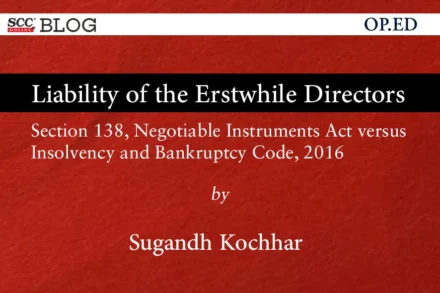
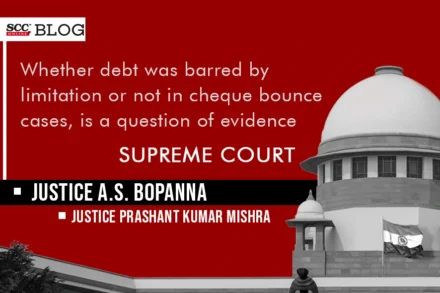
“The question of debt barred by limitation is to be decided on basis of evidence as, limitation is a mixed question of law and fact”.

Allahabad High Court said that in the eye of law, wife and husband have separate entity. The present case is not a case that the wife, sole proprietor of the Firm had provided the cheque signed by or on behalf of the applicant
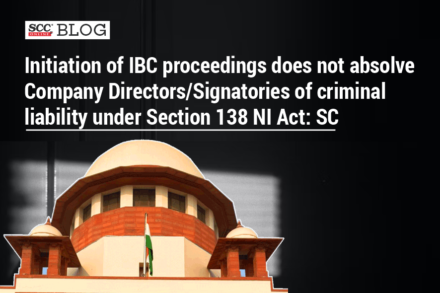
The Supreme Court observed that the scope of nature of proceedings under the two Acts are quite different and would not intercede each other.
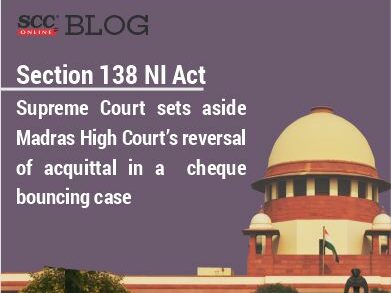
The Supreme Court observed that the scope of interference in an appeal against acquittal is limited and that the Madras High Court ‘could not have interfered with the finding of acquittal recorded by the learned Trial Court.
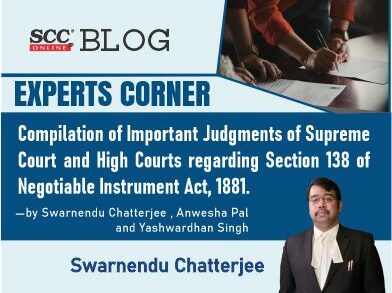
by Swarnendu Chatterjee† Anwesha Pal†† and Yashwardhan Singh†††
Cite as: 2023 SCC OnLine Blog Exp 11
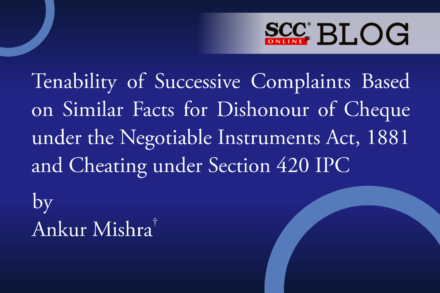
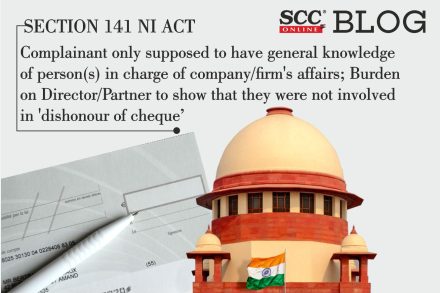
“Quashing of a complaint is a serious matter. Complaint cannot be quashed for the asking. For quashing of a complaint, it must be shown that no offence is made out at all against the Director or Partner.”
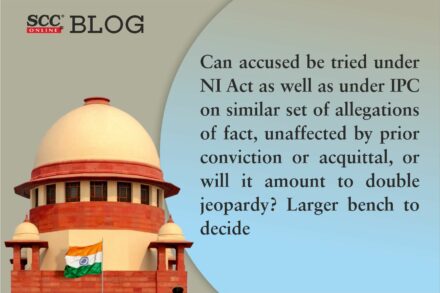
Supreme Court: The bench of SA Nazeer and JK Maheshwari*, JJ has called upon a larger bench to decide if on similar